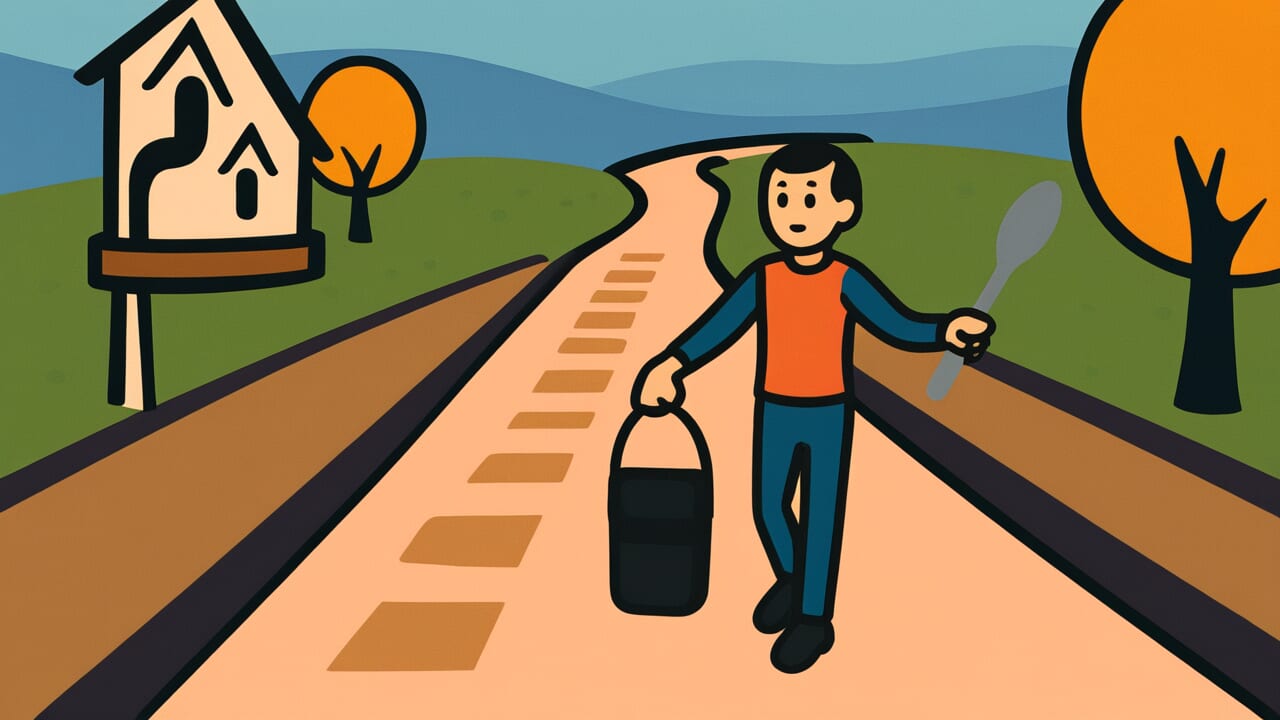How to Read “Birth is a visit, death is a return home”
sei wa ki nari shi wa ki nari
Meaning of “Birth is a visit, death is a return home”
This proverb expresses that life is a temporary dwelling, and death is a return to our original place. The time we spend living in this world is like a traveler staying temporarily at an inn. It doesn’t last forever.
Death is not seen as an ending or disappearance. Instead, it’s understood as the soul returning to where it truly belongs.
This proverb is used when accepting death not as something to fear, but as a natural return. When we lose someone dear, or when we think about our own death, these words offer comfort and peace.
In modern times, people often avoid talking about death. But this proverb teaches us to quietly accept death as part of life. It’s wisdom for letting go of attachments and living our limited time more fully.
Origin and Etymology
The exact source of this proverb has several theories. However, it’s believed to come from ancient Chinese philosophy, particularly influenced by Taoism and Buddhism.
The character “寄” (ki) means “to stay temporarily” or “to dwell for a while.” The character “帰” (ki) means “to return to one’s original place.”
In ancient China, there was a belief that human souls descended from heaven to inhabit bodies. After death, they would return to heaven again. Life in this world was seen as the soul “temporarily residing” on earth.
Death was the soul “returning” to where it truly belonged. This philosophy spread to Japan and merged with Buddhist concepts of reincarnation.
The word “寄” also carries the image of a traveler staying at an inn. Comparing life to a journey appears in cultures around the world. But this proverb is distinctive in viewing this world as a temporary lodging.
It positions death as a return to one’s homeland. Life and death aren’t seen as opposites, but as part of a continuous flow. This Eastern view of life and death is condensed into these few words.
Usage Examples
- My grandfather was peaceful until the end, and just as “Birth is a visit, death is a return home” says, he departed calmly
- As I’ve thought more deeply about life, I’ve finally begun to understand what the ancients meant by “Birth is a visit, death is a return home”
Universal Wisdom
Why do people fear death? It’s because we see death as “the end” or “disappearance.” But this proverb has been passed down for so long perhaps because it puts into words a different truth we instinctively feel.
We all suddenly appear in this world, and someday we’ll leave it. Where we came from and where we’re going, nobody truly knows. But ancient people answered this anxiety with the beautiful words “visit” and “return home.”
Being born is “visiting,” a temporary stay. Dying is “returning home,” going back to our original place.
There’s deep comfort in this way of thinking. The pain of separation we experience in this world might ease a little if we know this world itself is a temporary dwelling.
At the same time, precisely because it’s temporary, we feel moved to treasure this moment more deeply.
Humans are the only creatures aware of their own mortality. That’s why how we view death directly connects to how we live. This proverb has been teaching us for hundreds of years to accept death not as an enemy, but as life’s natural completion.
When AI Hears This
Life exists by stealing order from its surroundings. This is life’s essence from a thermodynamics perspective.
Throughout the universe, disorder (entropy) constantly increases. This is an absolute law that cannot be defied. Yet life alone seems to be an exception.
A fertilized egg, a single simple cell, develops into a complex human body with tens of trillions of cells. This clearly shows increasing order.
But actually, life takes in highly ordered matter called food. It breaks this down into heat and waste, which are disordered. By sacrificing the order around it, life maintains its own order.
Calculations show humans consume about 2000 kilocalories of energy daily. In this process, they greatly increase the entropy around them. Living is the act of temporarily “gathering together” the order called “self,” at the cost of accelerating the universe’s disorder.
And when we die, we repay that debt. The complex molecules that formed our bodies decompose. They return to simple forms like carbon, nitrogen, and hydrogen. This is what “returning home” means.
Life is a temporary borrower of order. Death is the settlement that returns the universe’s accounting to normal.
Lessons for Today
What this proverb teaches modern people is the courage to let go of attachments. We suffer trying to hold onto everything forever: work, money, status, relationships.
But if we understand that our stay in this world is temporary, perhaps we can loosen our grip a little.
This isn’t resignation or apathy. It’s actually the opposite. Precisely because this is a temporary dwelling, we feel moved to savor this moment more carefully.
Because it’s a place we’ll definitely leave someday, the time we spend with people we meet here becomes irreplaceable.
Modern society drives us with “more, more.” But this proverb quietly speaks to us. You’re just in the middle of a journey. You don’t need to rush carrying heavy baggage.
If you know there’s a place to return to, your journey becomes lighter. Being aware of death actually enriches life.



Comments